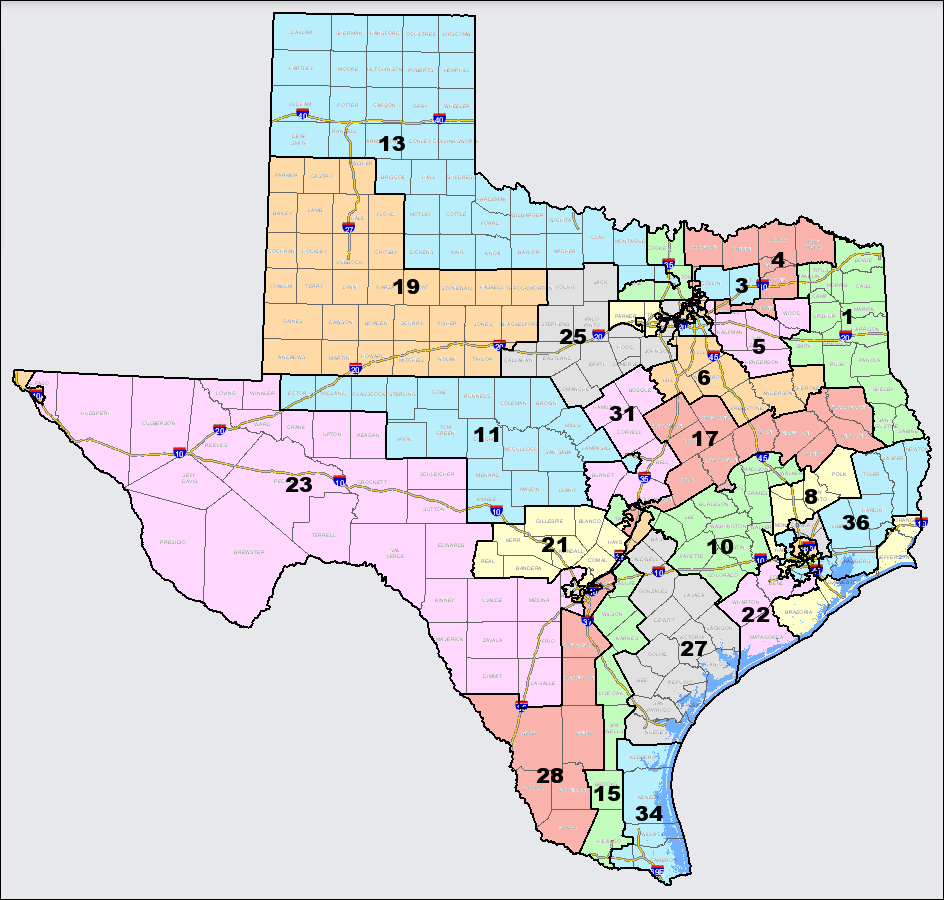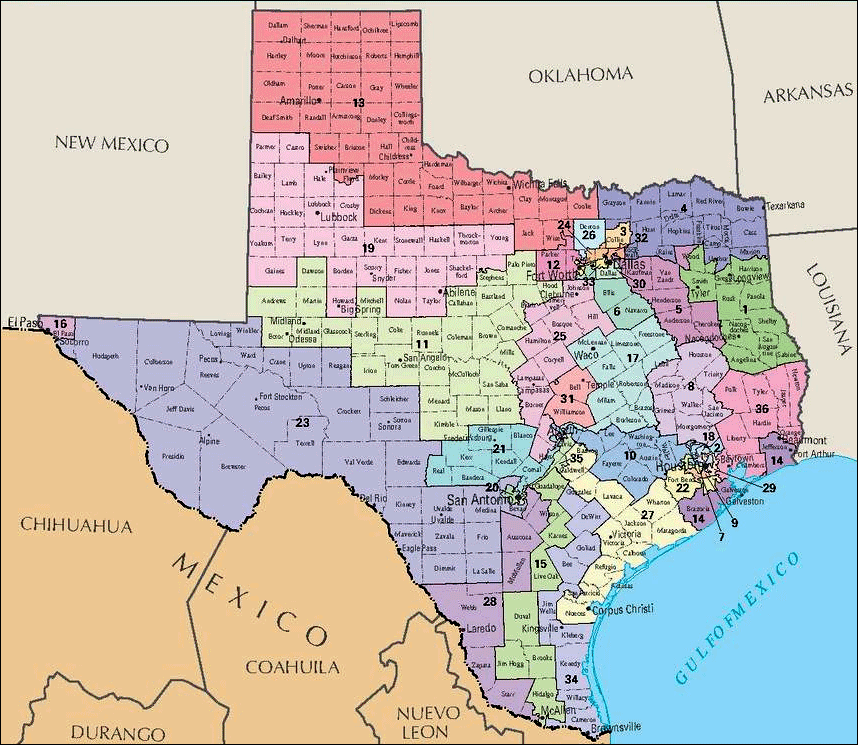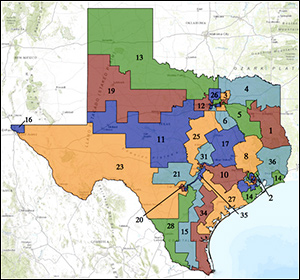By Jim Ellis
 March 7, 2022 — More is becoming clear about Tuesday night’s Texas primary election. Topping the list, Republicans had the better night in terms of voter participation. Their turnout, which exceeded 1.9 million voters in the governor’s race, represents at least a 24.2 percent increase over the last midterm election year of 2018. The Democrats, on the other hand, saw only a 3.5 percent commensurate increase.
March 7, 2022 — More is becoming clear about Tuesday night’s Texas primary election. Topping the list, Republicans had the better night in terms of voter participation. Their turnout, which exceeded 1.9 million voters in the governor’s race, represents at least a 24.2 percent increase over the last midterm election year of 2018. The Democrats, on the other hand, saw only a 3.5 percent commensurate increase.
Two major runoff elections advance to a May 24 vote. In the attorney general’s race, embattled incumbent Ken Paxton, who has been under federal indictment since 2015 with no action taken, and faces bribery accusations from ex-staff members along with a now public extra-marital affair, still managed to place first in the primary. He recorded 42.7 percent of the Republican vote and now faces Land Commissioner George P. Bush in the secondary election. Commissioner Bush is the son of former Florida governor and ex-presidential candidate Jeb Bush.
Bush received 22.8 percent, which was enough to clinch second place and advance. In third position with 17.5 percent, just ahead of US Rep. Louie Gohmert’s (R-Tyler) 17.1 percent, was former state Supreme Court Justice Eva Guzman. With approximately 58 percent of the Republican primary electorate choosing someone other than incumbent Paxton, the runoff outlook bodes poorly for him on paper, but the AG still has a solid base within the GOP’s most conservative faction. The latter will be an important element in the lower turnout runoff election.
In the primary contest, Bush was the only opponent that Paxton did not attack with negative ads. This suggests his preference is to run against Bush in what was always viewed as a contest that would evolve into a runoff, so this attorney general’s battle should be an interesting three-month campaign.
In the federal races, two incumbents were forced to runoff elections, Reps. Henry Cuellar (D-Laredo) and Van Taylor (R-Plano), but the latter situation is already settled.
The Cuellar race got much closer as late votes were being tabulated. According to the Secretary of State’s website, Cuellar, who came from way behind after trailing early, took the lead but did not reach the majority threshold. Some outstanding and overseas ballots remain to be tabulated, but it doesn’t appear as if this runoff will be avoided.
The official count now stands a 48.4 percent for Rep. Cuellar and 46.9 percent for opponent Jessica Cisneros. A third candidate, Tannya Benavides, secured only 4.7 percent of the vote, but this was enough to deny either front runner majority support.
The race not only broke along ideological lines, but also geographic. Rep. Cuellar is a member of the more politically moderate Blue Dog Coalition, while Cisneros earned support from the Democratic Socialists. Geographically, Cisneros ran up the vote score in the northern part of the district, the area in and around San Antonio, while the counties south of the city and all the way to the Mexican border including Cuellar’s home county of Webb, strongly supported him.





